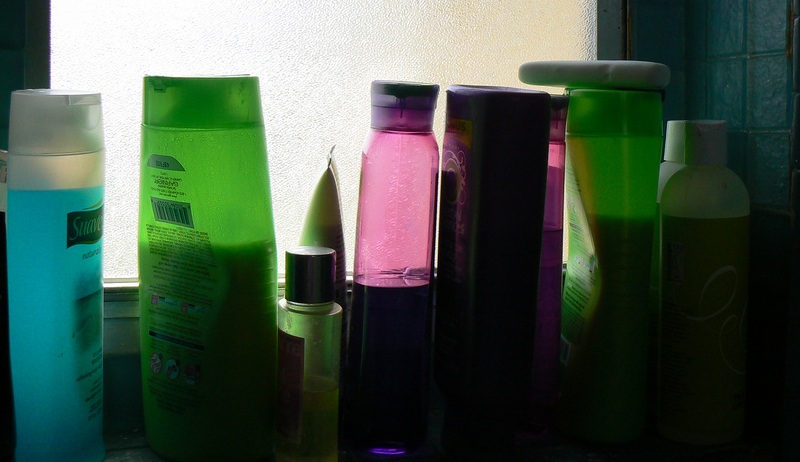Study: Popular, Ineffective Antibacterial Chemical Found In 100% Of Pregnant Women, May Interfere With Fetal Development
Researchers looking at pregnant women in New York found that 100% of them had triclosan in their urine, HealthDay reports. They also found triclocarban, another antibacterial chemical, in over 85% of the women. Triclosan also was found in over 50% of the samples of umbilical cord blood taken from the women, which indicates that the chemical can be transmitted to developing fetuses.
Studies of triclosan in animals have found that it may interfere with fetal development at the hormonal level. Called endocrine disruption, such interference has been tied to deformation in mice, rats, and frogs. The antibacterial agent is currently under review by the FDA, which in 40 years has never formally found it to be either safe or unsafe.
Triclosan isn’t just used in hand soaps and shower gels. It’s in about 2000 consumer products overall, including rugs, pet-care products, and school supplies — basically, anything you buy that claims to have antibacterial properties has probably got triclosan in it. And it’s in some places you might not expect it at all, like toothpaste.
Bloomberg recently took a long look at the approvals process Colgate went through to get their Total toothpaste, which includes triclosan, approved by the FDA.
Between 1992 and 1997, Colgate submitted four different applications for Total to the FDA. 35 pages of Colgate’s application materials to the FDA were not released to the public until this year, following a lawsuit. The recently released documents show that most of the studies they cited in their favor were paid for or sponsored at least in part by Colgate. The company’s applications also dismissed other studies as irrelevant, including a 1992 study finding triclosan linked to “rat litters [that] had increased incidence of delayed bone formation in areas including the skull, vertebrae and pelvis.”
The recently released documents also include a cancer study that looked at rats that had been fed triclosan for up to two years. The FDA found that study inadequate and requested another. A now-defunct pro-triclosan trade group, with Colgate among its members, began a second cancer study that was expected to take 18 months to complete. Colgate Total, as Bloomberg notes, was approved and went to store shelves 17 months later — before the study could ever be finished.
Bloomberg spoke with several scientific experts, most of whom were primarily concerned with the accumulative effects of triclosan exposure over time. And it effects pretty much everyone. Bloomberg reports that a 2003 study by the CDC found triclosan in 75% of the 2500 Americans they tested, including children. And a study from the Canadian Environmental Law Association just last month found triclosan and triclocarban in 90% of the surface water samples they took from the Great Lakes.
In Europe, triclosan has been banned in materials that come into contact with food since 2010. In the U.S., some brands are voluntarily phasing triclosan out from their products. Minnesota passed a law banning triclosan in consumer hygiene products earlier this year; the ban goes into effect in 2017.
The real kicker? All of this maybe-risky exposure doesn’t even really have any strong consumer benefits. The FDA has found that https://consumerist.com/2010/04/08/fda-says-your-antibacterial-soap-may-be-no-better-than-my-regular-old-soap/”>antibacterial soap doesn’t actually even work any better than the old-fashioned kind.
Exposure to Common Antibacterials May Affect Growth of Fetus: Study [HealthDay]
Colgate Total Ingredient Linked to Hormones, Cancer Spotlights FDA Process [Bloomberg]
Want more consumer news? Visit our parent organization, Consumer Reports, for the latest on scams, recalls, and other consumer issues.


